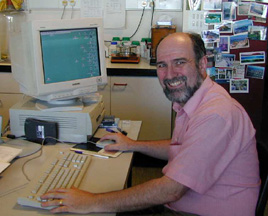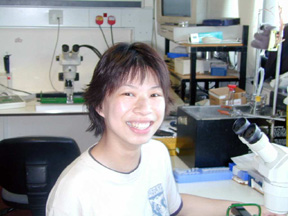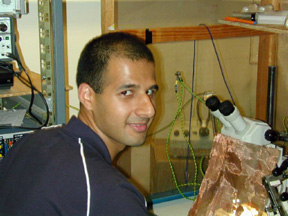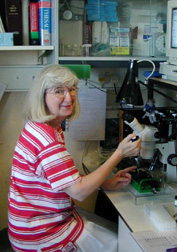Vascular Pharmacology
Diseases of the circulation (hypertension, heart failure, coronary vascular disease and stroke) are some of the biggest killers in Western society. We aim to improve understanding of the effects of disease on blood vessel function and to produce strategies for prevention and alleviation of organ damage arising from blood vessel malfunction. We are approaching this problem by elucidating the physiological, cellular and molecular mechanisms of drug action on the vasculature and its endothelial lining.
Mechanisms of vasodilator action
For a number of years, we have studied actions of vasodilators (e.g. nitric oxide, adenosine, levcromakalim) and vasoconstrictors (e.g. endothelin, a-adrenoceptor agonists) on resistance vessels. Recent work has included study of endothelium-derived hyperpolarising factor (EDHF) and its sensitivity to K+ channel blockers [1,2] and we have also elucidated some interactions between K+ channel vasodilator mechanisms (e.g. levcromakalim, EDHF) and those dependent on nitric oxide/cyclic GMP [3, 4] as well as investigated the membrane potential changes evoked by vasodilators (such as K+ channel openers [5] and purinoceptor agonists [6]) in endothelial cells in situ.
 Dr Hiley in the Lab Dr Hiley in the Lab |
 |
 |
Vascular pharmacology of cannabinoids

Since 1997 we have had an interest in the cardiovascular actions of cannabinoids, starting with an investigation of the endocannabinoid, anandamide, as a potential candidate for EDHF [2].
We showed that anandamide and the responses evoked by EDHF-releasing agents, carbachol and A23187, were differentially sensitive to inhibition of K+ channels and that the K+ channels concerned were on the endothelium rather than the vascular smooth muscle. We have since shown that the responses to cannabinoid agonists in rat blood vessels (the mesenteric [7,8] and the coronary arteries [9,10]) do not seem to be mediated through the classical CB1 and CB2 receptors.
Current work is intended to characterise the receptor mediating these responses and, in collaboration of Dr Will Ford, also the cardioprotective effects of the endocannabinoids.
The laboratory uses perfusion of vascular beds in vitro (particularly the coronary and mesenteric vasculature), wire- and video myographs, electrophysiology and tissue culture. Active collaborations are with Dr Alain Vuylsteke, Consultant Anaesthetist, Papworth Hospital, Cambridgeshire (concerning vascular actions of blood substitutes [11]) and Dr Will Ford (concerning the cardioprotective effects of cannabinoids) of the Welsh School of Pharmacy, Cardiff.
